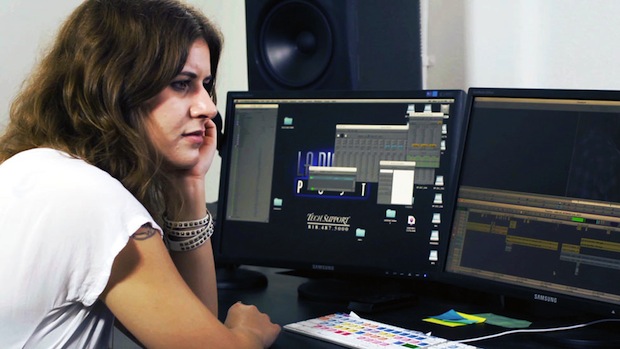Music Supervisors Explain How They Find Indie Music For Movies And TV [Part 1]

The following quotes from music supervisors who find music for movies and tv were taken from articles I discovered via the Music Licensing
Twitter feed (also the source of the above thumbnail). Another avenue
for getting into how music supervisors think and operate is NARIP's
collection of Music Supervisor Sessions on YouTube. Please feel free to share additional resources in the comments.
Music Supervisors on How They Find Music
Andrea von Foerster, who places a great deal of music in movies, says that she has no system but clearly has some habits including checking her inbox for over a thousand daily emails:
"I listen to everything that comes my
way, and sometime it can even be a year later, but I've placed songs
that I've heard a year later, so, it's never too late for me to hear
something, because you really only need the right project for it. I've
definitely worked on things where people are like, this is out right
now, you should listen to this, but I don't have a place for it. Maybe
six months later I've got the perfect place for it. So, you never really
know what you're gonna get. And, it's still kind of frustrating,
because in film, you don't really get the chance to use something right
away. You'll be on a film for a year to two years, so, in the meantime,
you have to worry about TV or ads or trailers playing something before
it can be in your movie...."
"Everything is about finding something
within the time limit and price that you have. For the most part, I'm
not really on the hipster blogs that everyone talks about. I don't care
what other people's opinions of music are, because it might not fit
their ears, but it fits my project. I do actually watch endless videos
on YouTube at like four in the morning, and I'll just go from one thread
to another to another to another. Having a British music background, I
tend to watch as many British music videos as possible and find new
artists that way."
Ann Kline, music director for the Showtime series Shameless, that features up to thirty songs per episode, is mostly focused on indie rock:
"There are so many indie bands out there
that are accessible through the Internet and so many licensing companies
that gather them and help you weed through what's appropriate for your
show. I have a lot of great contacts but we definitely go out to
independent companies almost exclusively. It's rare that we use any
stuff from a major label. So we find it all over. Even when we were
first gathering music for the show, I would call clubs in Chicago and
ask for some of their favorite indie bands to kind of get that vibe."
Lindsay Wolfington, who supervises music for One Tree Hill, describes how she finds music in relationship to the process of picking it for a particular script:
"When I get the script, I read it and
mark scenes where I think a song will go – sometimes it's obvious
because we are in a bar, other times it's an emotional moment that I
think we'll want to score with a song. Then I break down all the scenes
in a spreadsheet, divvy up where we will spend our money (because we
can't use big artists in every spot, hence our search for great indie
artists!), and then put my headphones on. I go through new albums I've
received from major labels, publishers and companies who represent indie
artists. And then I also browse through folders I have been filtering
music into. I have folders in my iTunes for mellow music, for dramatic
"what's going to happen" moments, and then upbeat and quirky songs."
"I send my suggestions (2-3 songs per
spot, usually 3-4 for the coda) to the editor cutting that episode and
they temp them in. Then as the episodes become polished, we revise music
accordingly. Sometimes the scene reads completely different in the
script than it does on-camera, so I just put on my headphones again and
find better choices!
Note that these supervisors mention music they receive from labels and from companies that represent artists for licensing as well as music they find on the web. They also employ personal approaches, such as Ann Kline calling clubs in Chicago. In the process they consider a great deal of music and turn down a huge amount of music that they like or that other people like simply because it doesn't fit the project.
So it's not just a matter of making good music, whatever the heck that really means, but of being discoverable via the multiple channels that music supervisors employ. For an unsigned indie artist, that includes being on YouTube and other web outlets as well as utilizing the increasing range of companies that exist to get your music in front of music supervisors.
Be Sure to Check Out This Excellent Interview with Detailed Advice:
7 Questions For A Real Live Music Supervisor: Sarah Gavigan of Get Your Music Licensed
More:


Comments
Post a Comment
Thanks for commenting. You email address and IP Address has been recorded for future reference. any anonymous comment which is deemed abusive will be removed and investigated for further action.